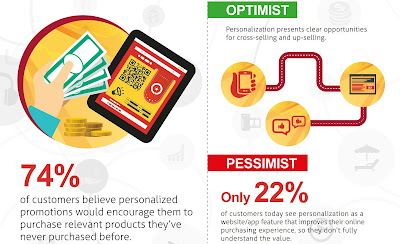 |
| Source: Aladdin Group. A lion dance to welcome Aladdin Street Singapore. |
Aladdinstreet aims
to provide a trusted and secure e-market platform that allows merchants
to trade, and consumers to purchase premium quality and halal* products.
The Aladdin Group has already launched a site with a similar concept
for Malaysia in
April.
Aladdinstreet.com.my features more than 10,000 premium quality products which either have halal certification from the relevant halal certification bodies, or which do not require halal certification* in Malaysia but are certified for safety, hygiene and quality.
The
Aladdin Group further aims to make Aladdin Street in the global top 10
for the most profitable e-commerce platforms, attracting over 60 million
unique visitors monthly. Aladdinstreet.com.sg targets to achieve over
S$50 million in sales within the first year of its launch, but what will
also make the Aladdin Group unique is that it collaborates and works
with government agencies, trade associations, chambers of commerce and
halal certification bodies to help Singapore SMEs access the global
e-marketplace via the Group’s international network.
“The direction and future for e-commerce and changes in consumption patterns are obvious and unpreventable,” said Dato’ Dr Kong. “Increasing rents and manpower shortages have caused retail shakeups and are preventing promising small businesses from setting up shop. Aladdin Street Singapore will be the next best alternative where merchants are also partners, and we will work closely with them to develop their businesses for a win-win-win partnership.”
Aladdinstreet.com.my features more than 10,000 premium quality products which either have halal certification from the relevant halal certification bodies, or which do not require halal certification* in Malaysia but are certified for safety, hygiene and quality.
Aladdin
Group Co-founder & President Dato’ Dr Grace Kong says that the
country’s excellent business environment and infrastructure will not
only help the group become one of the world’s most profitable e-commerce
platforms, but also noted that the Aladdin Street Singapore
e-marketplace is the first to feature only halal and premium quality
products catering to an under-served 14% of Singapore’s population.
The
Aladdin Group has allocated up to US$130 million to promote and support
the Aladdin Street brand name all over the world in the next three
years. In addition to these global marketing efforts, the Aladdin Group
will further invest S$2 million in phase 1 to support its Singapore
efforts to make the Aladdin Street brand the brand of choice for halal
and premium quality products.
 |
| Source: Aladdin Group. From left: Aladdin Group Co-Founder Dato’ Dr Sheikh Muszaphar Shukor Al Masriem, Dato’ Dr Grace Kong, also an Aladdin Group Co-Founder, and Dato' Sri Desmond To. |
“The direction and future for e-commerce and changes in consumption patterns are obvious and unpreventable,” said Dato’ Dr Kong. “Increasing rents and manpower shortages have caused retail shakeups and are preventing promising small businesses from setting up shop. Aladdin Street Singapore will be the next best alternative where merchants are also partners, and we will work closely with them to develop their businesses for a win-win-win partnership.”
According
to Google and Temasek Holdings, Southeast Asia’s e-commerce market is
set to grow more than sixfold to US$200 billion by 2025, driven mostly
by the online e-commerce retail market and outpacing the growth of
traditional retail sales.
The
Aladdin Group is headquartered in Kuala Lumpur, Malaysia and is helmed
by Co-founder and Malaysia’s first astronaut - Dato’ Dr Sheikh Muszaphar
Shukor Al Masrie. The company believes that interest in an
e-marketplace for premium quality and halal products is global. The
global halal industry opportunity, excluding Islamic finance, is
estimated by various industry sources to be worth up to US$2.3 trillion,
the group said.
Singapore is
the 29th country in which the group now has a joint venture. The other
countries in Asia Pacific and the Middle East include mainland China,
India, Indonesia, Thailand, Vietnam, Japan, South Korea, Taiwan,
Australia, New Zealand, and Pakistan. Partnerships are being
finalised in Iran, Jordan, Turkey, the UAE, KSA, Kuwait, Bahrain, Qatar
and Oman.
Interested?
All merchants will have to undergo stringent halal compliance and business integrity checks by an in-house task force. While merchant participation is by invitation only, merchants may request inclusion through the Register button.


